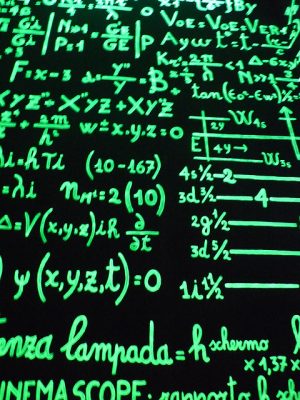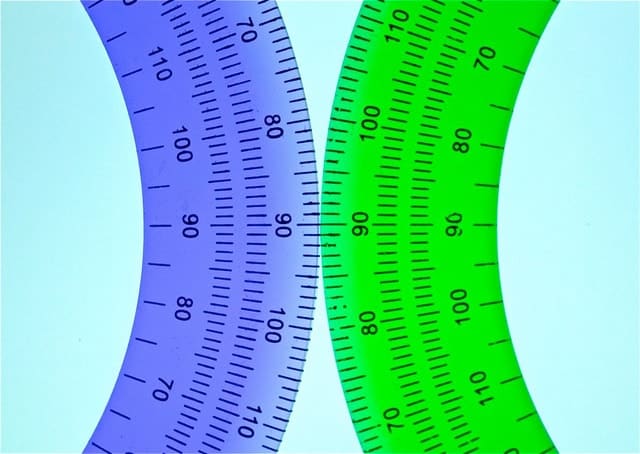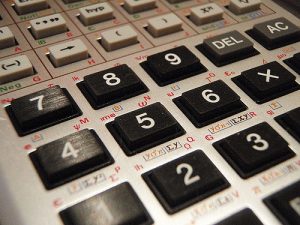Practice Questions
Training for a maths exam is a bit like training for a big running race – you can’t just read about the theory, you need to do as much practice as possible. This is why practicing past papers is the number one tip for revising for a maths exam. Once you have done as many past exam questions as possible, then it is time to start doing text book questions, questions from online revision sites and questions from old homeworks.
You should never look at a question and say “I know how to do that, I won’t bother trying”. Firstly the question could have hidden features which you need to practice, and secondly, the more maths you do, the more agile your brain will be – ready for the day of the exam.
Check your answers
Once you have got into the habit of doing past maths exam papers, then it is really important to check your answers. If you make a mistake then you need to understand where you went wrong. You might be lucky and you may have just made an arithmetic mistake. On the other hand, your error might be due to a fundamental misunderstanding in your brain which you need to get sorted during your revision. If you can’t understand the mark scheme (and they can be tricky) then you need to seek out some help from teachers or friends.
Don’t forget the theory

Most maths exams require you to revise various theories, proofs and formulas – some of which you will need to learn off by heart. Therefore it is important to read back through your lecture notes, syllabus guides or revision books to check out what knowledge you need for the exam.
Hopefully most theory will come to light in past exam questions, but it is still worth checking that you haven’t missed anything which you need. This is particularly important for undergraduate maths revision, where you might not have access to many past exam questions.
Committing the theory to memory
Everyone has different methods for revising, however for most people writing stuff down seems to help commit information to memory. Some people put post it notes around the house – this at least reminds you on a daily basis about what you need to know. Others choose to use flash cards – this is a good way to check that you can answer the maths questions which will be in your exam. Another useful approach is to try and cram all the knowledge you need for the course onto a one page summary sheet.
Don’t ignore the things you can’t do
Some people play a dangerous game where they ignore certain topics, with the hope that they won’t come up in the exam. This is never a good idea, you need to make sure that you face up to your least favourite topics, seeking help for the areas which you are weakest at.
Avoid buying a whole set of new equipment ready for the exam
This is especially true of scientific calculators – if you aren’t used to your calculator then you could easily make mistakes in the exam. Equally you don’t want to find out that your pencil doesn’t fit into your brand new pair of compasses or that you don’t know how to use your fancy new protractor. Make sure that you revise with the equipment which you will use on the day of the exam. (Although you might want to buy some new batteries for your calculator!)
Don’t fall into the natural brilliance trap
Some people don’t revise enough because they think they are naturally brilliant at maths. This type of person will usually hit a point where they underachieve. Don’t lull yourself into a false sense of security – even gifted mathematicians still need to revise.
Another type of person writes themselves off, even before they have started their revision. They think that they aren’t naturally brilliant enough to do well in a maths exam, and therefore only revise half-heartedly. What they forget is that a lot of maths revision is about the sweat and toil rather than the natural ability of a candidate. If you put in the hours understanding past paper questions, you will be able to do better than you could have ever imagined.
Maths is a social subject

What most people don’t realise is that most professional mathematicians spend a lot of time working with each other discussing mathematics, rather than hiding away in isolation.
When you are planning your maths exam revision, make sure to plan in a mixture of group study sessions with friends alongside time alone for revising. Discussing and explaining mathematics can help us understand the subject much more deeply.
Don’t forget your general revision tips
Make sure you follow all the general revision advice which can help you to revise for any subject.
- Make a revision plan and stick to it
- Sleep well, eat well and drink plenty of water
- Take breaks in revision
- Stay calm and keep your exam in perspective
- Attend any extra revision sessions which are put on for you
- Talk to your friends and family about how you are doing
Keep your eye on the prize
Revising for maths exams can be hard work – it can mean making sacrifices where you choose to prioritise revision over seeing your friends or relaxing in front of the TV. Therefore it is always important to keep your eye on the prize. Think about what your maths qualification will mean for your future life and career. Hopefully this will keep you motivated when times are tough during revision.
Article by Hazel Lewis
Image credits
Protractors by Dean Hochman@Flickr
Math Formulas by João Trindade @Flickr
Scientific Calculator by Liesl@Flickr







